Wellness


HGH vs Testosterone Therapy (TRT): What is the Difference Between Them?
Useful articles
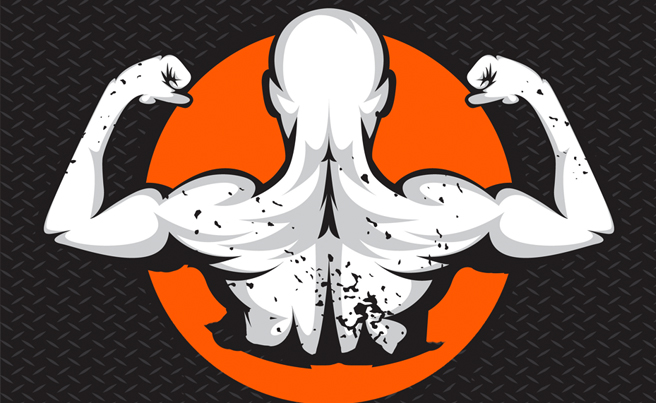
The human body is a fantastically complex machine. Everything in it is regulated by a mixture of hundreds of molecules and chemicals, from amino acids and vitamins to neurotransmitters and hormones.
Unfortunately, as we age, this machine starts to break down. It can fail is millions of different ways, but some of them are more common than others. In men, particularly men around age 40, one of the ways the body starts to fail is in the production and regulation of two key hormones: HGH and Testosterone.
First, let’s talk about what each of these hormones does for the body.
Testosterone Overview
Testosterone is the primary sex hormone for men and is an anabolic steroid naturally produced in the body. It is responsible for the development of male sexual characteristics, ranging from the development of testicles as a fetus to the effects of puberty. It promotes muscle growth, bone density, and body hair growth. Testosterone is produced in the testicles, but that production is stimulated by activity in the pituitary gland.
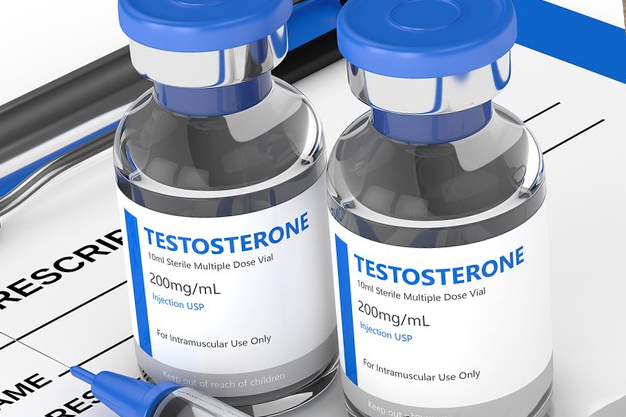
As you age, after about age 30, your testosterone levels drop by about 1% per year on average. A steeper decline can indicate a problem with the testicles, called hypogonadism, or a problem with the pituitary gland.
Decreased testosterone leads to lower sexual performance, increased body fat, reduced muscle strength and bulk, and potential emotional issues such as depression or a lack of motivation. In extremes, it can also potentially lead to body hair loss and gynecomastia.
HGH Overview
HGH is the acronym for Human Growth Hormone, also known as somatotropin. It is produced in the pituitary gland and is responsible for cell growth, cell reproduction, and cell regeneration. It’s critically important for human development and growth as children and throughout puberty, but it remains important throughout life as a regulator for muscle growth, performance, healing, and anti-aging.
As you age, beginning around middle age, your pituitary gland slowly starts to decrease the amount of HGH it produces. This is one part of the long, slow decline of the human body through aging. It decreases athletic performance, makes it harder to build muscle, and can lead to an increase in body fat, among other things.
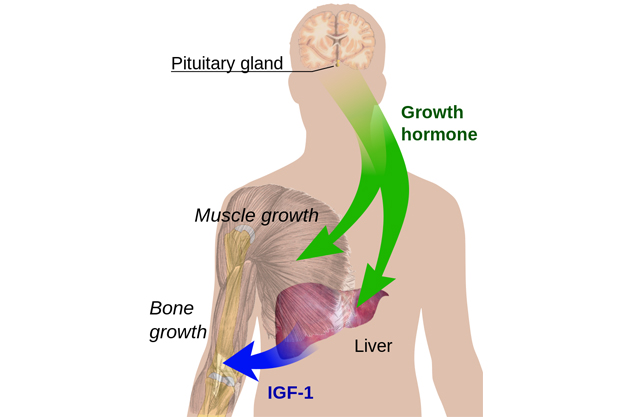
Both deficiency and excess HGH can be considered diseases. Excess HGH can lead to increased bone size and density, specifically in the jaw and fingers. This can be accompanied by nerve distress such as carpal tunnel syndrome, headaches, insulin resistance, and reduced sexual function.
Deficiency, meanwhile, can have a wide range of impacts depending on when it begins. In children, it can result in growth failure and delayed sexual maturity. In adults, it can lead to weaker bones, decreased energy, and reduced muscle mass.
It’s worth mentioning that, in adults, the majority of cases of HGH deficiency are caused by a benign tumor on the pituitary gland called an adenoma. The natural, slow decline of HGH production is not considered a deficiency.
What is Testosterone Replacement Therapy?
Testosterone Replacement Therapy is a medical treatment aimed at supplementing testosterone in people who have lower than normal levels of the hormone. It is used for a variety of purposes: to treat low testosterone levels in older men, to boost testosterone in men with hypogonadism, to assist in transitioning for trans men, and more.
It is also increasingly being used as a form of a performance-enhancing drug in men who are suffering from poor performance in the gym, and as a way to boost sexual performance in men with low testosterone who are concerned about their libido, erectile dysfunction, or performance. Some people use it to boost muscle growth from working out, some use it to promote weight loss, and brandon allen powerlifter some simply use it to increase endurance in all forms of physical activity.

Testosterone replacement therapy is also useful for people with issues preventing their bodies from producing an appropriate amount of testosterone, including autoimmune disorders, damaged gonads, radiation therapy, and infections that damage the testicles.
Testosterone replacement therapy is administered in one of several different ways. All versions administer testosterone directly.
- Testosterone can be taken in pill form and absorbed into the bloodstream like any other medication. This is generally not recommended, as it can damage the liver.
- Testosterone can be absorbed through the skin, so some products involve skin creams or patches that are applied to the skin once or twice a day.
- Some forms of testosterone delivery involve applying a gel to the inside of the nose, or a patch or gel to the gums, once or twice a day. These soft tissues easily absorb the testosterone into the bloodstream.
- Testosterone can be injected into the muscles, where it is absorbed directly.
- Testosterone capsules can be injected under the skin, where they slowly dissolve and release testosterone into the surrounding tissues over the course of several weeks.
Different methods of administration generally depend on the volume of testosterone needed to be delivered, the frequency, and the comfort level of the person taking it. Some people don’t like injections, for example, and some people might prefer a single monthly implant over daily applications of creams or gels.
Should you consider TRT? If you are experiencing the symptoms of low testosterone, it might be worth consulting a doctor. You will likely need to submit to several blood tests, and you may be asked to adjust factors such as your diet and exercise levels, as these can impact your testosterone levels before a test. If it is established that you have low testosterone for your age group, you may be eligible for beneficial testosterone replacement therapy.
Note that while testosterone is often used as a performance enhancer and anabolic steroid for increased gym performance, this isn’t necessarily a good idea. If you have low testosterone, TRT can be beneficial. If you have normal testosterone, increasing it via TRT or unregulated testosterone supplements can lead to other health issues. Always understand the risks of anything you put into your body as a performance enhancer.
Does TRT Have Side Effects?
Generally, TRT is only administered to people who have been diagnosed with low testosterone. As such, carefully balanced testosterone therapy simply restores the body’s natural testosterone to its ideal state.
However, in people without low testosterone, TRT might lead to an excess in testosterone. You should have your levels professionally checked before considering any sort of therapy to ensure that you are (in fact) low on testosterone.
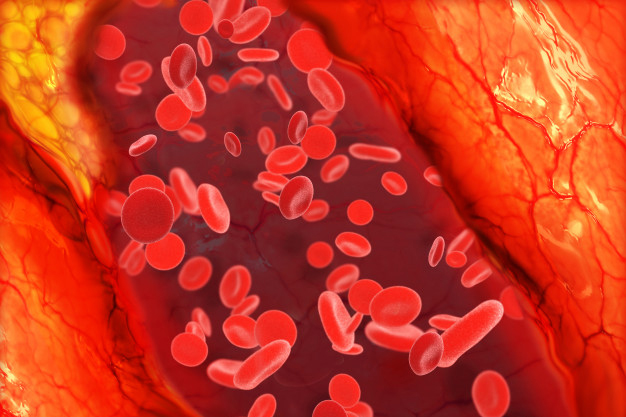
Excess testosterone can lead to a variety of side effects, including:
- Excess red blood cell production, leading to an increased chance of blood clots, which can cause a pulmonary embolism.
- Limited sperm production and shrunken testicles.
- Gynecomastia.
- An enlarged prostate, both in a benign form (benign prostatic hyperplasia) and a cancerous one.
- Increased risk of acne and other skin conditions.
- Increased risk of sleep apnea, or worsening sleep apnea.
There are also a variety of studies that indicate a link between high testosterone and increased aggression. These studies usually look at a correlation rather than a causation, though. TRT may or may not cause aggression, but higher testosterone levels are often observed in aggresive people.
What is HGH Therapy?
Where testosterone replacement therapy simply adds more testosterone to your body, HGH therapy does not simply add more human growth hormone. Instead, HGH therapy adds a synthetic analogue. This analogue is a recombinant form of HGH called somatreopleopin.
In men who are diagnosed with lower than average levels of HGH, supplemental HGH therapy may be prescribed. It is also a common treatment for older men with Short Bowel Syndrome, Pituitary Adenoma, or the muscle wasting associated with HIV/AIDS.
The ase of HGH as a performance enhancer to build muscle and enhance athletic performance is not FDA approved, and it is banned by most competitive agencies. In the early days, detecting the difference between HGH and synthetic HGH was impossible, but blood tests are now available that can tell the difference.
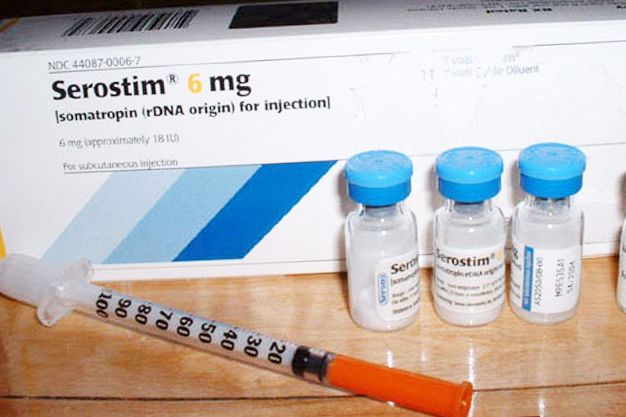
Many businesses claim that HGH therapy can reduce or reverse the effects of aging and that HGH supplements may be the solution to the deterioration of the body with age. These claims are generally only made by people selling HGH, so you should be skeptical of what they claim. There are no studies that indicate HGH having miraculous anti-aging properties, only that it can help with issues caused by low HGH in the first place.
Additionally, HGH supplements must be injected. Oral supplements of HGH do not work; the hormone is digested and dissolved into individual parts before it can be absorbed.
Should you consider HGH Therapy? Some adult men have unnaturally low HGH. The symptoms of this include:
- High levels of body fat, particularly around the waist.
- Mental issues such as anxiety and depression.
- Decreased sexual interest and performance.
- Greater sensitivity to cold and heat.
- Less muscle, strength, and stamina.
- Reduced bone density.
If you are experiencing these symptoms, you should consult with a doctor. Your doctor can perform blood tests to check the level of HGH in your system. If you have low HGH, it’s possible that your doctor can prescript artificial HGH injections to help restore your body’s natural HGH levels.
If this is the case, your doctor will also likely want to obtain imaging of your brain to check on the state of your pituitary gland. Because low HGH is most often caused by a tumor on the pituitary, you will want to verify whether or not you have this tumor, and whether or not it’s cancerous.
Does HGH Therapy Have Side Effects?
In adults with low HGH, restoring a normal level of HGH has a variety of positive benefits, including reduced body fat, stronger bones, and an increased ability to build muscle. However, in an otherwise healthy adult, excess HGH can cause a variety of negative side effects. These can include:
- Nerve and joint pain.
- Carpal tunnel syndrome.
- Bodily swelling caused by excess fluid in your body tissue.
- Tingling and numbness in the skin.
- High cholesterol levels.
- Increased insulin resistance, up to a possible form of type II diabetes.
- Gynecomastia.
- Increased risk of certain types of cancer.
Additionally, HGH is a prescription medication. If you are not getting it from a doctor, you run the additional risk of getting unregulated HGH from an unknown source. This HGH may be contaminated or adulterated with unknown substances and can cause a wide range of possible issues.
The Bottom Line
Both testosterone replacement therapy and human growth hormone therapy are potentially useful therapies for older men who are starting to suffer from decreased levels of hormones as they age. Unfortunately, they can be quite risky. We can break things down into two scenarios.
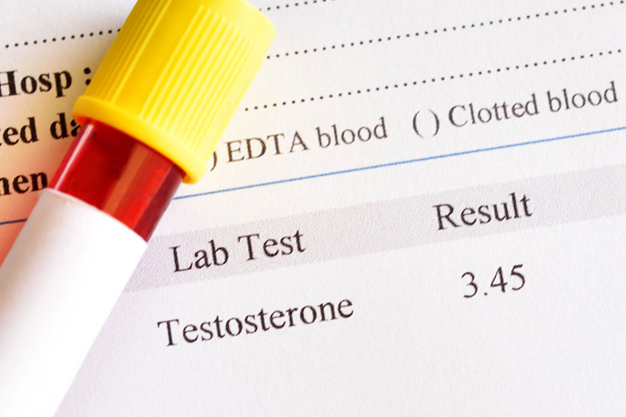
First, if your hormones are normal – albeit starting to decrease with age – you can consider hormone therapies. Both TRT and HGH are options, but you should be very careful with them. Using either without a doctor’s supervision is akin to taking performance-enhancing drugs, which can be dangerous. These drugs must be obtained from legitimate sources to be safe and dosed appropriately. The risk of side effects is great enough that it’s not generally recommended in healthy adult men.
Second, if you are suffering from the symptoms of low T or low HGH, you should consult with a doctor. Your doctor will be able to take blood tests and imaging to see if you have lower than normal hormones for your age – if you have anything wrong with your pituitary gland. If you confirm that you have lower than normal hormones, taking testosterone or HGH – whichever is low – can improve your quality of life and athletic performance.
What it all comes down to is finding the appropriate natural balance. Too little testosterone or too little HGH can be detrimental to your performance and lifestyle, but so can too much of either. It does you no good to build more muscle if you suffer nerve pain or diabetes because of it, right?
If you’re getting older and you’re concerned about your ability to build muscle, don’t be. Nothing stops you from building muscle if you’re otherwise healthy; you just need to take a slightly different approach than you would if you were younger. Feel free to consult a doctor if you’re concerned about low hormone levels, but try to avoid taking unregulated hormone treatments without medical verification first.
Thank! Your message has been sent successfully.



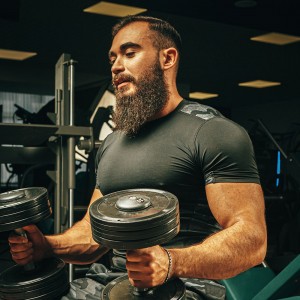

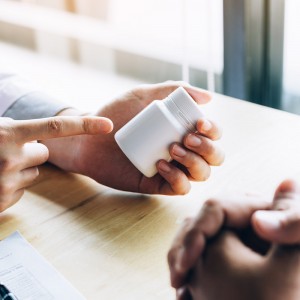
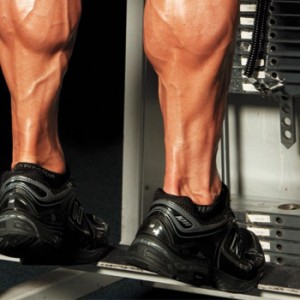



Questions and answers 0